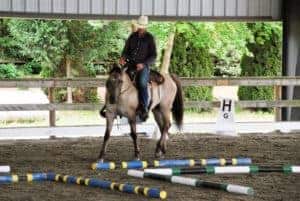
How Horses Learn
Learning theory describes how we can influence horse behavior and improve training outcomes. Discover how to shape your horse’s behavior.

Learning theory describes how we can influence horse behavior and improve training outcomes. Discover how to shape your horse’s behavior.
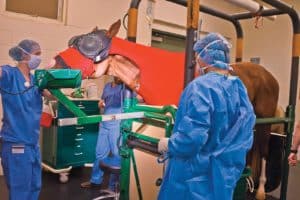
Surgeons have honed a new approach to correct airway collapse in horses.
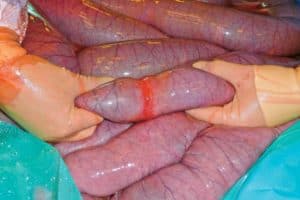
Learn more about this challenging inflammatory condition that affects the horse’s intestines.

Dreaming of an arena? Alayne Blickle (Horses for Clean Water), Donna Foulk (PSU Equine Extension), and Michelle Anderson (The Horse) share their experiences.
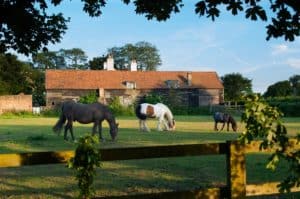
Alayne Blickle (Horses for Clean Water), Donna Foulk (PSU Equine Extension), and Michelle Anderson (The Horse) discuss fostering positive relationships with nonhorsey neighbors.
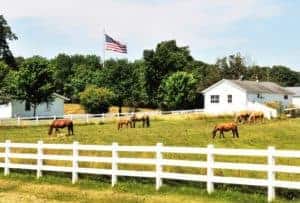
How many horses can you legally have on your farm? Horses for Clean Water’s Alayne Blickle and Donna Foulk, PSU extension specialist, offer insight.

Nutritionist Dr. Clair Thunes and vet Dr. Erin Denney-Jones offer their thoughts on feed frequency for horse health.

Our panelists share their expertise on hauling horses during winter weather.
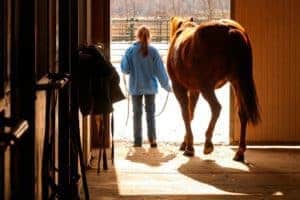
Alayne Blickle and Dr. Loving share their thoughts on whether or not horses should live in closed barns during cold weather.
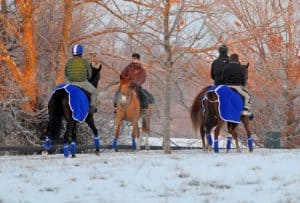
Our panelists discuss the benefits and uses of a wool or fleece quarter sheet.

What therapies might help relieve the rest of a horse’s body when treating a specific injury or recovering from surgery?

Would a horse with long-toed, low-heeled conformation benefit from allowing their hooves to grow out naturally?

Your vet might choose to inject your horse if his joints require direct treatment due to disease, inflammation, or pain.

Our experts offer advice on if and how to warm cold bits before riding.
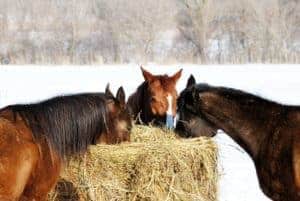
Dr. Nancy Loving and Horses for Clean Water’s Alayne Blickle share safety tips for free feeding horses during the winter.

Colic is a threat to horses, especially during cold weather. Our experts share feeding and hydration tips to protect your horse.
Stay on top of the most recent Horse Health news with